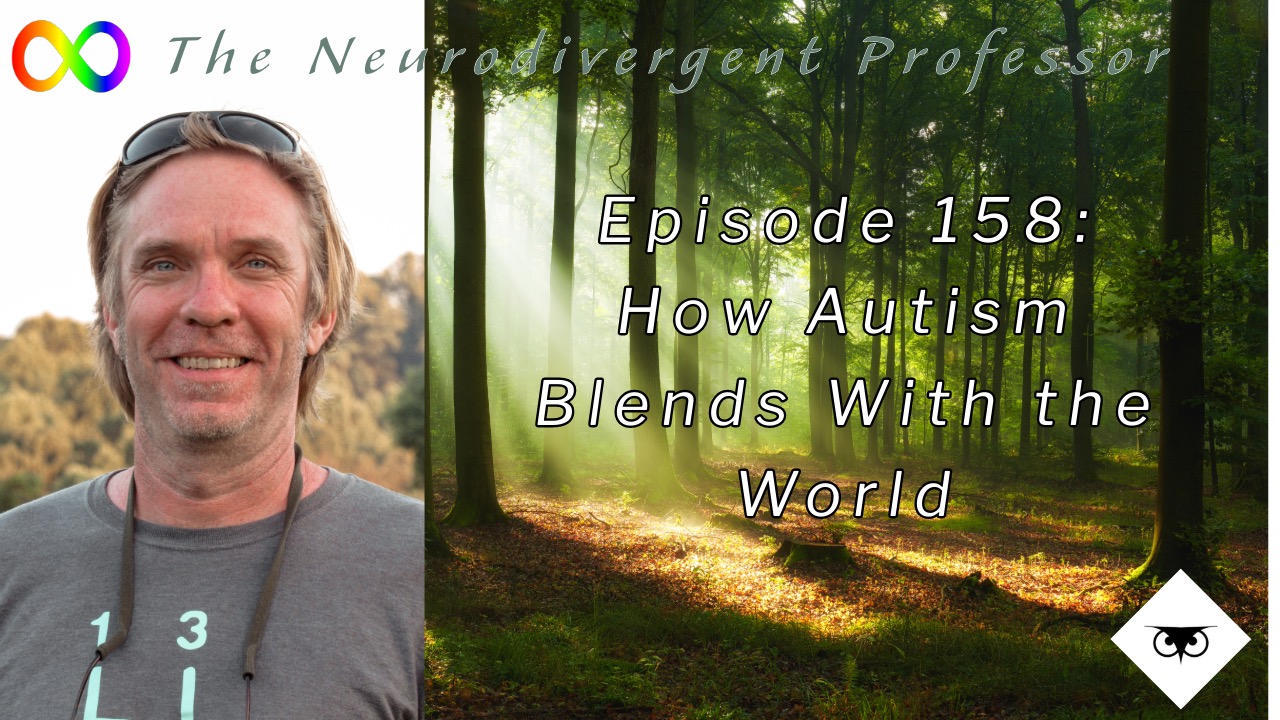
Do you love yourself?
I know, it’s an extremely personal question. When a counselor first asked me this question I was taken aback. It’s offensive and puts one in a defensive position. And who likes feeling defensive?
But therapy is about healing and I answered as best I could. Again, and again. I’m fairly certain every counselor, therapist, and coach I have worked with has asked me some form of this question.
I do love myself. But when I leave my inner world to interact with the people around me I don’t believe they will love me. This was the question that started my journey with neurodiversity.
When my new therapist heard my answer to this question she heard something the others did not. When I described my inner and outer worlds and my troubles blending the two, she suggested I might explore some autism self-diagnostic quizzes. Long story short, I tested very likely to be autistic. So here we are.
What fascinates me is what I have learned from the neurodiversity community in just a few months. Whereas therapy made me feel like something was wrong with me, neurodiversity suggests that there is not.
Being different isn’t wrong.
In therapy, I was taught that many of my beliefs were incorrect and could be changed. The problem was me, the solution was easy, and it was simply a matter of me implementing the solution.
Therapy diagnosed me as being:
— Inauthentic
— A people pleaser
— Codependent
— Too concerned with what other people think
Therapy suggests my feelings are irrational and that I need to change. Therapy made me feel broken and prescribed various quick fixes. Most of these solutions came in the form of simply changing the way I think — the way my brain works. However, after over a decade in various therapies with nearly a dozen different practitioners, I was unable.
My beliefs . . . my brain . . . my neurology proved impossible to alter.
My inability to fix myself led me down a shame spiral.
I don’t blame therapy or the therapists. I learned a lot intellectually. I came to understand the popular psychotherapeutic approaches and concepts. I also learned a lot about my childhood and my trauma. I did a lot of healing over the years. Yet, the same problems plagued me.
I loved myself but found it challenging to interact with ‘normal people’. I continued to feel like an outcast. Different. Other.
When I considered that there was nothing wrong with me things started to loosen up. Therapy reinforced my feelings of being different but left me feeling wrong. Thinking I might be neurodivergent made me feel okay about being different. And this lines up with my understanding of evolution and ecology. Of course, we are different. That’s the point.
Being autistic means I am:
— Extra sensitive and hyper-vigilant. My nervous system is hyperactive.
— Hungry for information. To understand the world I need a lot of complex data. This helps me feel safe.
— Suspicious of what people say when it doesn’t line up with what they do. I don’t think people are intentionally dishonest, but I think we all wear masks. I need to see through the masks to feel like I can take mine off.
— Afraid that the world won’t love me if I do not conform to standards of normalcy. This is the big one. I know I’m different, yet feel my culture and society force me into normalcy.
Being autistic suggests that these feelings are rational and there is no need to change. My shame is unfounded. There is nothing wrong with my brain. The solution is to recognize how and why the world seeks conformity and that this is irrational — not me.
Autism is teaching me that I don’t need to change myself, but that there are things I can do to help integrate my inner and outer worlds. Solutions include:
— Being myself. As scary as it is, interacting with people unmasked is critical.
— Practicing self-compassion and realizing when I am imposing cultural norms on myself.
— Sticking to my practice which enables me to pause and take the observer’s perspective. Things like journaling, exercise, a healthy diet, and meditation.
— Accepting that conformity goes against our evolutionary design. We are meant to express our diversity — to fly our freak flags! Going against this principle is what is wrong, not being different.
Though prejudice and stigma try to hide neurodiversity in the shadows, it is time we figure out how to be present. Expressing our diversity is imperative to solve our problems. We are not all alike. Trying to alter this natural law is killing us. My writing, podcasts, and videos are a small part of making this change.
Together we can find the courage to change the world.
Help us stay connected by subscribing to my Medium page, podcast, YouTube channel, or webpage.
Podcast streaming audio:
https://www.buzzsprout.com/530563/14230742
YouTube video:
I’m currently reading “The Healthy Deviant. A Rule-Breakers Guide to Being Healthy in an Unhealthy World” by Pilar Gerasimo. You can find her work and the book here.
Discover more from Revolutionizing human evolution
Subscribe to get the latest posts sent to your email.

